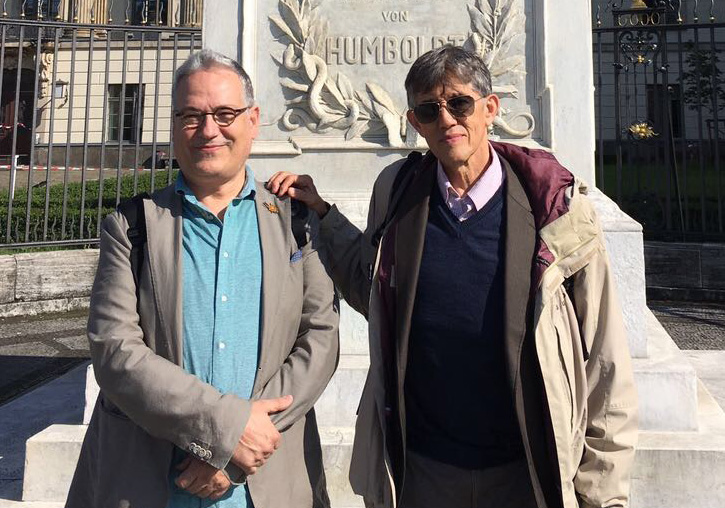Juli Peretó and Antonio Lazcano analyse how Lynn Margulis related cell evolution and planetary changes
- Scientific Culture and Innovation Unit
- March 25th, 2021
Juli Peretó, from the Department of Biochemistry and Molecular Biology at the University of Valencia (UV), and Antonio Lazcano, from the Department of Evolutionary Biology at the National Autonomous University of Mexico (UNAM), have analysed Lynn Margulis’ ideas in their historic context and their impact on evolutionary biology. The work, published in the journal BioSystems, reviews the study published in the late 60’s by the famous American biologist and how, although some aspects of his work were wrong, he knew how to relate cell evolution and the changes of planetary nature.
This work highlights that Lynn Margulis’ studies were a milestone in the world of microbial evolutionary ecology and helped to understand prokaryotic organisms as essential components in the evolution of life on our planet. Aspects in which Lynn Margulis was wrong are also analysed in detail, such as the identification of spirochetes with the origin of eukaryotic mobility.
Juli Peretó, also a researcher at the Institute of Integrative Systems Biology (I2SysBio, UV-CSIC joint centre), and Antonio Lazcano place special emphasis on the relationship that the famous scientist managed to establish between cell evolution and changes in planetary environments. He proposed that respiratory capacity and metabolic use of oxygen arose in prokaryotic groups during the development of oxygen gas tolerance. This situation, along with mitochondrial symbiosis, culminated in the development of eukaryotic cells.
In 1967, Lynn Margulis (although she signed it with the last name of her then-also-known husband, Sagan) published “On the origin of mitosing cells” in the Journal of Theoretical Biology. In this study she advocated a revolutionary idea for the evolutionary biology of the time. This later gave rise to the Theory of Serial Endosymbiosis or Endosymbiotic Theory (SET) and was based on the idea that eukaryotic organisms evolved from the incorporation of prokaryotic organisms and their subsequent assimilation.
Although he referred to previous ideas that recognised in symbiosis a mechanism of evolution, Margulis’ work was not a simple review of other studies. In fact, his writing is considered a key piece in the study of the origin of cells and the parallel evolution of life and the planet. Her evolutionary theory in a planetary context fit into the atmosphere of an era, in which scientific research related to the cosmos flourished due to the space race then delivered between the Soviet Union and the United States.
Article: Lazcano, A. and Peretó, J. Prokaryotic symbiotic consortia and the origin of nucleated cells: A critical review of Lynn Margulis hypothesis. BioSystems 204, 104408 (2021). https://doi.org/10.1016/j.biosystems.2021.104408
Photo captions:
1. The biologist from the United States Lynn Margulis (home).
2. Researchers Juli Peretó (left) and Antonio Lazcano (right).

















